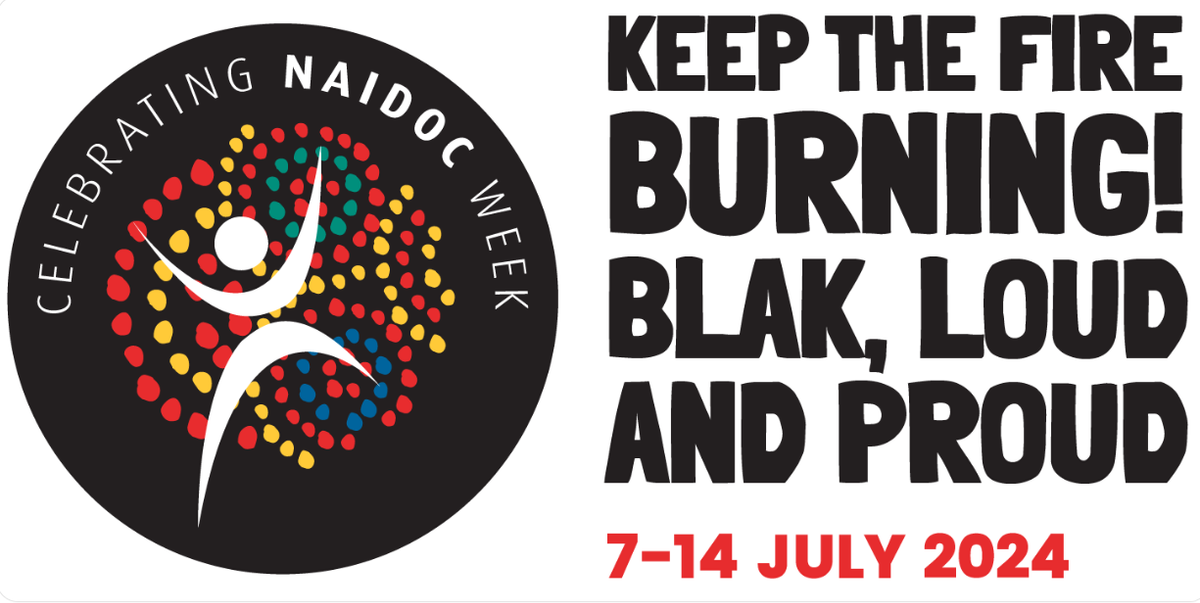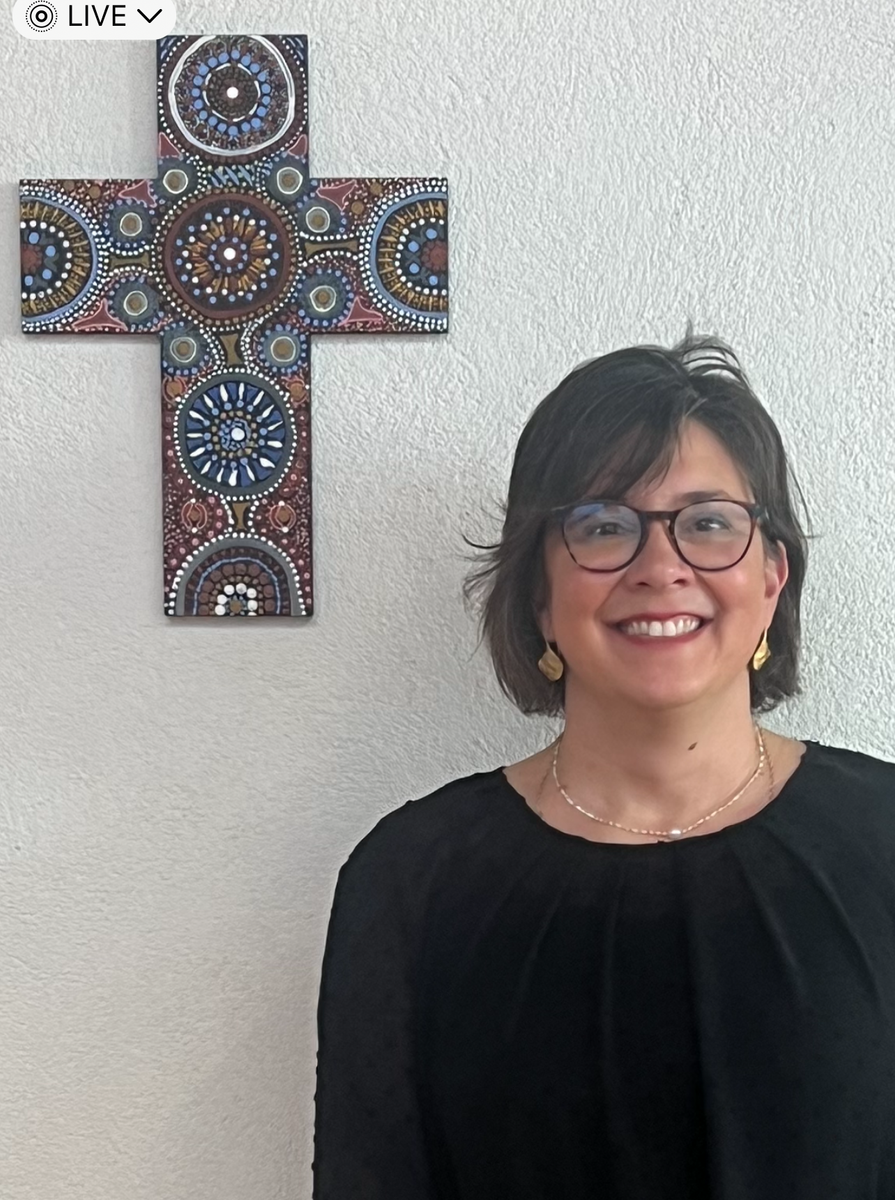Editorial

In this issue of the newsletter, we join each other in celebrating the focus on First Nations healing in our ministries for National Reconciliation Week.
Naidoc Week
… And next month, National NAIDOC week celebrations will be held across Australia from 7-14 July, 2024 to further celebrate and recognize the history, culture and achievements of Aboriginal and Torres Strait Islander people.
The theme honours the enduring strength and vitality of First Nations culture – with fire a symbol of connection to Country, to each other, and to the rich tapestry of traditions that define Aboriginal and Torres Strait Islander peoples.
Kildare Ministries First Nations Forum
Just over a week later, on July 22, representatives from all of Kildare Ministries Community works and schools will gather for the first Kildare Ministries First Nations Forum which seeks to create a network for learning and listening with wonder, leading with courage, and living in compassionate relationship for healing.
Representatives will be comprised of First Nations Staff, community members and passionate supporters of Living Justice and Peace in relationship with First Nations. At this meeting, we will be joined by Professor Anne Pattel-Gray as our companion, and we will begin to discern the way forward for Kildare Ministries.
Where do we begin?
The context within which we work for First Nations justice in Australia can’t be summarized in just this editorial, but the following statistics start to paint the picture of what our nation is dealing with.
According to the most recent review of the landmark agreement, ‘Closing the Gap,’ these are some of the following findings;
- Only around 34% of Aboriginal and Torres Strait Islander children are assessed as being on track in all areas of development.
- Although Governments aimed to decrease the rate of imprisonment of Aboriginal and Torres Strait Islanders by 15%, the number of those incarcerated has risen.
- The number of Aboriginal and Torres Strait Islander children in out of home care has also risen
- The rate of suicide among Aboriginal and Torres Strait Islander peoples has increased.
And from where are we, as Kildare Ministries, beginning?
What are our most current responses to this national situation?
The feedback provided at our conference through the dedicated app yielded a very high number of responses to help us learn from each other.
What did we say in the survey?
When delegates were asked to respond to Anne-Pattel-Gray’s address on First Nations Justice, all responses were energized and positive, and they fell roughly into two main categories:
Just over half of the respondents were warm expressions of thanks and/or contained questions and wonderings about our best future directions in the space of First Nations justice and peace
The rest of the responses fell into a second category – curriculum and learning. They were varied in detail and abounded in creativity, but generally we spoke about needing to learn and know more about First Nations in order to positively impact our curriculum and pedagogy. Many of us felt deeply that teaching and learning more about Aboriginal and Torres Strait Islander history, culture, practises, language and spirituality would enrich all of our students, us, and perhaps our nationhood, in terms of justice and peace.
Listening carefully and gently to each other.
In addition, a small sample of informal feedback expressed important thoughts. It indicated that some of us felt that our heartfelt efforts for First Nations justice were not given recognition. These feelings are also part of the conversation and journey for us all. It has been a long road toward justice and healing so far, and hearing that there is a long way to go naturally made some feel disheartened.
The tragedy is that this long walk has been a painful and personal daily reality for generations of First Nations people in Australia, but we can all be inspired by their ongoing invitation, resilience and achievements and walk in solidarity with them as we join in their effort toward justice.
All of our thoughts, feelings and dreams are part of our genuine response as Kildare Ministries – and we can learn from the gaps in our nation’s response, in our energy, knowledge, understanding and compassion. Altogether the feedback demonstrates that Kildare Ministries has a very heartfelt and strong opportunity to authentically support each other in listening, learning and growing together on this journey toward justice.
Lila Watson, a Gangulu woman, gives us a place to begin;
‘If you have come here to help me, you are wasting your time; but if you have come because your liberation is bound up with mine, then let us work together.’
With these few words, she teaches us of the interconnectedness and sacredness of our shared humanity; that the chains that bind the few, bind us all, and are a threat to freedom everywhere. She shows us that being bound together in love, solidarity, accompaniment and listening are the only ways forward for healing and for an enriched future for Australians. And she reminds us that we need to work together.
‘We leave base camp and start our trek across this vast country. We invite you to walk with us in a movement of the Australian people for a better future.’
(Uluru Statement from the Heart)
Let’s walk.
We are people of listening hearts
We hear the invitation
We cannot cease from journeying
Always one pace beyond
May we like Brigid, Daniel and Nano
May we know the fire within
Trust the opening path
May we hear the ancient blessings
Breathed into the ear of our hearts
As we create the path
To journey by a new and different way
Note: For helpful curriculum and learning resources visit ABC Education and download the file found at this link.
Renee Oberin
Mission Leader
Kildare Ministries


